Fresh Meat: Best New Artists (February, 2022)
Including Asake, Leanne Robinson, T.I Blaze and more
Including Asake, Leanne Robinson, T.I Blaze and more
Although it’s the shortest month of the year, February has been a great period for music from the continent. As Afropop continues to make leaps and bounds on the global stage, the music landscape on the continent is growing more unpredictable than ever, and there’s no longer any kind of routine for artist discovery. This hasn’t deterred us from our mission to highlight those on the continent who are teeming with potential and primed for a breakthrough.
Amidst all the changes in the world, music keeps going, and it keeps us going too. It’s our duty to put you on to the hottest newcomers in Africa who are consistently meeting the demand for something fresh, defiant, boundary-pushing and above all, authentic. This month, we’ve got one of the most interesting lineups in recent memory, offering up formidable artists from our home base in Lagos, Nigeria to Lusaka, Gambia and beyond.
Look back at all of our Fresh Meat here and keep up with them all on the Fresh Meat playlists on Spotify and Apple Music.
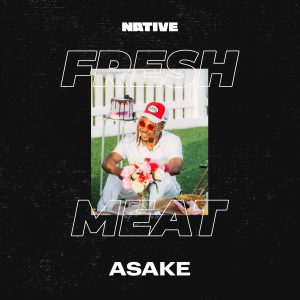
Asake first caught the attention of listeners with his 2020 viral hit single “Lady.” The Blaque-beats produced track sees him delivering an up-tempo tune where he adores his love interest. Shortly after, he released the follow-up single, “Mr Money,” which gained him even more listeners and his titular nickname. To reach a wider audience of listeners, he teamed up with DMW signee Peruzzi and street-hop hit-maker Zlatan for “Mr Money (Remix),” furthering the song’s reach into the Lagos mainland streets and upscale party scenes.
In the year that followed, Asake staggered his releases while redefining his sound into what it is now. Starting the year with a bang, the singer delivered the Olamide-assisted “Omo Ope,” one of the best and biggest songs of the year so far. It served as the lead single off his new debut EP, ‘Ololade Asake’, released under the auspices of Olamide’s YBNL imprint as its latest signee. The 4-track EP flaunts the artists’ new and refined sound, presenting Asake in the most confident form of his career. He delivers a stellar 11-minute run as he cuts across topics such as the growth, self-awareness, the importance of hard work, as well as getting set to live his best life. If you’re looking for a clear and concise musical experience, tap into Asake’s music.
Wonu Osikoya
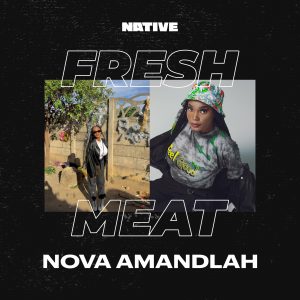
As we’ve seen in recent years, African musicians are really singing their hearts out. Especially ladies, whose songs are suffused with the complications of life and love. The likes of Fresh Meat alumni Ayra Starr and Ria Sean are just some of the many women owning their rightful power to create whatever songs they want, however personal or sensual it may be. The Zambian-Nigerian singer Nova Amandlah is also cut from this mould of singer-songwriters. Blending crispy R&B with the atmosphere of her Zambian and South African origin, the 25-year old singer’s music imbibes a flagrant flavour in conversation with her network of influences permeating various spheres of the world due to technological advancements.
Last year September, Nova released her debut project, a 5-track EP titled ‘Unveiled’ which was helmed by the single “Ring On It,” a song about the perceived level of commitments from one’s love interest. The subject echoes of Beyonce’s seminal “Single Ladies (Ring on It)” but Nova’s vocals nevertheless bends of its own accord, easing into the smooth production. “I ain’t your booty call,” she sings, effortlessly flowing into a rap-sung quartet on the latter parts of the song. There’s an inner consistency driving Nova’s songwriting, whether on the boastful, EDM-appropriating opener “Attitude” or “On a Low,” the sensual closer which progresses with the quality of late-night playlist music. On standout “Venus And Mars,” Nova’s flow oscillates between singing and rapping, taking the lo-fi influenced production with affectionate lyrics about wanting someone who might not burn with the same intensity.
Emmanuel Esomnofu
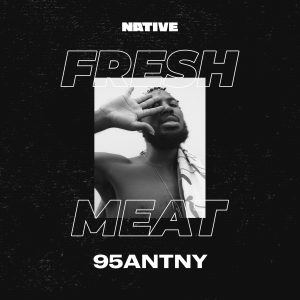
A significant portion of this era of urban African music is driven by creative restlessness and an eagerness to engage with a diverse range of sonic styles. Ghanaian singer, songwriter and producer 95ANTNY has made it a preference to be musically omnivorous. A trip through his SoundCloud will reveal, from the cloudy trap of “vibing” to the giddy alt-pop on “Supposed 2” and the smooth blend of R&B and mid-tempo Afropop on “Piece of Me,” that the singer shuffles through sounds like a musical game of spin the bottle.
Formerly performing as Tony Bryte until a fairly recent name change, 95ANTNY is an artist proud to wear the alternative tag, leaning into the boundary-less ethos of the most significant renaissance in African music from the last decade. In the five years since debuting with “vibing,” experimenting has helped him exhibit his chops adaptably, but at the heart of his songs is a knack for expressing himself plainly. He deals with relatable topics in his slightly brittle but deceptively rangy voice that always transmits a lived-in tenor. On his latest drop, “5STAR,” he issues out infectious boasts over slinky afro-fusion production; as his first song to venture out of the decidedly underground confines of SoundCloud, it’s a statement of confidence from an artist that’s getting set to hit his full stride.
Dennis Ade Peter
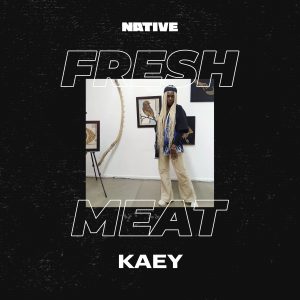
At just 20, Kaey has amassed a breadth of experiences that underline the intentionality in her music. Born in Ibadan, growing up in Lagos, and then moving to Johannesburg before returning to Nigeria around 2014, Kaey is film school graduate with a passionate tilt towards the microphone. “It’s always the music for me,” she told The NATIVE earlier this month. “I’ve always known since I was young that I wanted to do music. I grew up in a music-inclined family so there were always different kinds of music coming from everywhere. My dad listened to Reggae, my mom listened to Gospel, aunties and uncles listened to Hip-Hop and Pop music. I just picked up stuff from everywhere.”
In June 2020, KAEY released her debut song, “Oath,” a song built on muted keys and speculative percussions. In turn, KAEY’s lyrics probe the innermost confusions of someone who is not able to love with the honesty and vulnerability she craves. “What’s the point of chasing, what’s the point of chasing if all you do is hide?” she sings on the first verse before segueing into the emotive chorus. “Oath, tie you to me/You’re not helping me, my fantasy,” she croons, implying a supernatural resolution to her heart’s conflict.
Some of KAEY’s influences include Beyoncé, Ed Sheeran and Lauryn Hill—all musicians with a great ear for melody and expressive writing. On her latest song “Expensive Taste,” she likens herself to being one’s guilty pleasure, sticking endless metaphors for all she wants to do with the love interest she lovingly sings about. Talking about its creation, she says: “I’d previously written some notes and I was in the studio, the producer played me the beat and I started writing off that note I had made.” Still writing and recording, KAEY hopes to put out her debut project before the end of this year.
Emmanuel Esomnofu
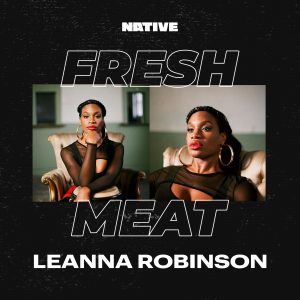
We love to explore fresh, new and unique talents; and Leanne Robinson is one of those as she is both a musical genius and an actress. After starting her trudge into music as a cover singer, Leanne dropped her debut single, “Last Time,” in August of 2018; since then, she has been dropping singles at a considerably frequent rate. Incorporating influences from Gospel, Soul, Pop, Jazz, Reggae and R&B, the singer’s music takes her wherever the wind blows, surprising her audience at each turn by merging varying musical choices with her attention-holding voice.
Like many artists today, her love for music and singing began during her younger days as a singer in the church choir; she was also coached by a friendly neighbour called Denise. “I do not know if singing chose me or I chose music, but I cannot remember a time when I have not sung; it’s just always been there,” she explained in an interview with Flavour Mag. Her love for music persuaded her to study art in the BRIT School, where she studied Musical Theatre Diploma and the university to learn Music management. Leanne’s urge to make it into the music industry was apparent during her performance in the 9th season of ‘X Factor UK’ and ‘The Voice.’ With an impressive catalogue of singles and a debut project on the horizon, Leanne Robinson will always have reasons to keep you hooked to her music.
Ada Nwakor
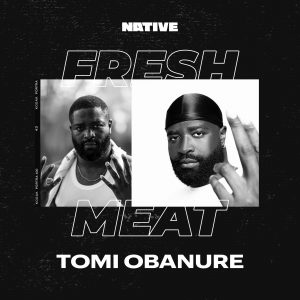
In a clime where zingy percussion and affably sunny melodies reign supreme, Tomi Obanure is an iconoclast going against the tide and forging a path for himself in Nigeria’s ever-expanding Drill and Rap space. Based in Nigeria’s capital city, Abuja, Tomi’s sonic palette is eclectic, venturing across quintessential knock ‘90s American rap to the contemporary bounce of Drill and Grime. Favouring football over rap music, Tomi’s passion for rap only started taking root at 15, but his actual dip into the water came after his university education in the UK. After wrapping up his education he packed his bags and headed back to Nigeria, where his nascent career started budding.
Across his two EPs, ‘No Rest for the Wicked’ and ‘I’ll Sleep When I’m Dead’, the rapper’s qualities are undeniable: his cadence is solid, his voice commanding, and his bars tight. From his black-and-white visuals to the dark hue of his sonic choices, he oozes class and sparks wizardry with each bar. On the recent 3-song set, ‘I’ll Sleep When I’m Dead’, he pushes the fringes of his creativity—stringing together serrated grunge melodies and drill percussion, then laying poignant, quick-fire raps on them. The result is a high-octane immersive experience. One of Tomi’s greatest strengths is his commanding shape-shifting voice. He wields it with masterful dexterity, compelling listeners to pay attention to his every word and entrancing them like an illusionist.
Chibuzo Emmanuel
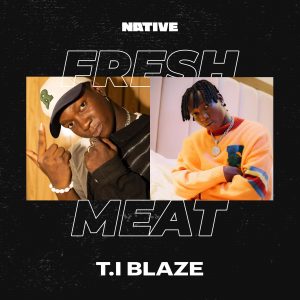
Over the last three years, street pop has witnessed a slight change of guard that has positioned the importance of masterful story-telling and innovative melodies at the core of the ascendant genre that is inching its way towards bonding with other wildly-popular genres like emo-rap and contemporary R&B. In newcomer, T.I. Blaze, street pop has potentially its biggest multi-hyphenate, who is capable of dexterous Trap flows and delicate hymns about the come-up with an almost off-the-cuff swagger.
The bulk of T.I.’s sparse catalogue is dedicated to memorialising his struggles as a kid from the ghetto and opening a pathway to his future ambition of having money and being influential. “Sometimes,” the song that catapulted him to fame is a quintessential story about the hustle and grind of the community that he is from and the trade-offs—positive and negative—that people might have to make it out of those places. His new debut project, ‘The Fresh Prince Of Lagos,’ unfolds his life’s story in significant ways, swapping the long-winded enunciations of “Sometimes” for brevity. It promises to be a significant year for youngster.
Wale Oloworekende
Words by Ada Nwakor, Dennis Ade-Peter, Emmanuel Esomnofu, Wale Oloworekende and Wonu Osikoya.

